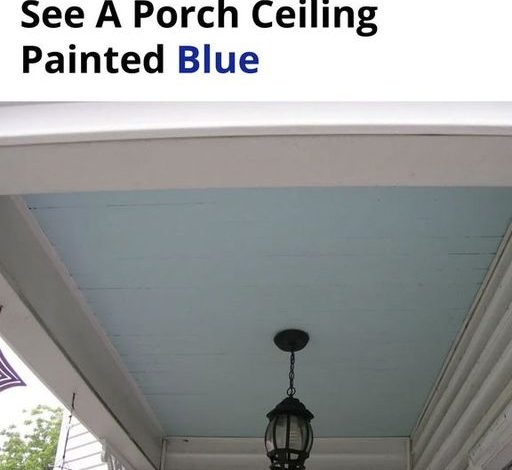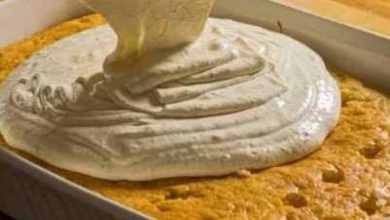
ADVERTISEMENT
The Tradition Behind Blue Porch Ceilings: More Than Just a Pretty Color
ADVERTISEMENT
If you’ve ever strolled through historic neighborhoods in the Southern United States, you may have noticed a charming and curious detail: many porch ceilings are painted a soft, sky-like shade of blue. While it might seem like a simple aesthetic choice, this tradition is rich with cultural significance and lore. But what does it really mean when you see a porch ceiling painted blue?
A Symbol of Protection: The Gullah-Geechee Tradition
One of the most widely recognized reasons for painting a porch ceiling blue stems from the Gullah-Geechee culture, which originates from African American communities in the Lowcountry regions of South Carolina, Georgia, and Florida. According to this tradition, the color blue—often referred to as “haint blue”—was believed to protect the home from spirits, or “haints.”
The belief was that spirits, who could not cross water, would be tricked into thinking that the blue porch ceiling was water, thus preventing them from entering the home. This custom was passed down through generations, and the use of haint blue remains a significant cultural practice in many Southern communities today.
Aesthetic Appeal and Connection to Nature
ADVERTISEMENT
Beyond its spiritual implications, blue porch ceilings have an undeniable aesthetic appeal. The color is reminiscent of a clear sky, creating an open, airy feeling that extends the natural beauty of the outdoors into the home. For this reason, many homeowners choose shades of blue for their porch ceilings to evoke tranquility and enhance the relaxing atmosphere of their outdoor space.
In some cases, it is also believed that painting the ceiling blue helps keep insects away, as the color mimics the appearance of the sky and fools bugs into thinking it’s not a surface to land on. While this may be more of a superstition than a scientifically proven fact, it has nonetheless contributed to the popularity of blue porch ceilings.
Historical and Architectural Significance
The tradition of painting porch ceilings blue is also rooted in architectural history. In the 19th and early 20th centuries, blue was a popular color for porch ceilings in many regions, particularly in Victorian and Colonial-style homes. The trend was partially influenced by the availability of blue pigments at the time, as well as by the desire to create a cohesive color palette that complemented the home’s exterior.
Over time, this practice has become a hallmark of Southern architecture, though it can be found in homes across the United States and even in other countries. Whether for its cultural significance, aesthetic beauty, or practical benefits, the tradition of blue porch ceilings has endured and continues to be embraced by homeowners today.
ADVERTISEMENT
Modern Interpretations and Variations
While traditional haint blue is a soft, pale shade, modern interpretations have expanded the palette to include a variety of blues, from pastel to deeper hues. Homeowners may choose a color that best suits their style while still honoring the tradition’s roots.
In addition, the practice of painting porch ceilings blue has been embraced by designers and homeowners who are drawn to its soothing and serene qualities, regardless of its origins. For many, the blue ceiling serves as a reminder of a simpler time and a connection to the past, blending tradition with contemporary design.
Conclusion
The next time you see a porch ceiling painted blue, you’ll know that there’s more to it than meets the eye. Whether it’s to ward off spirits, add a touch of beauty, or simply to honor a time-honored tradition, this charming detail carries with it a rich history and cultural significance that continues to resonate with people today. So, if you’re considering a fresh coat of paint for your porch, why not go blue? It might just bring a bit of Southern charm and a lot of good vibes to your home.
ADVERTISEMENT




